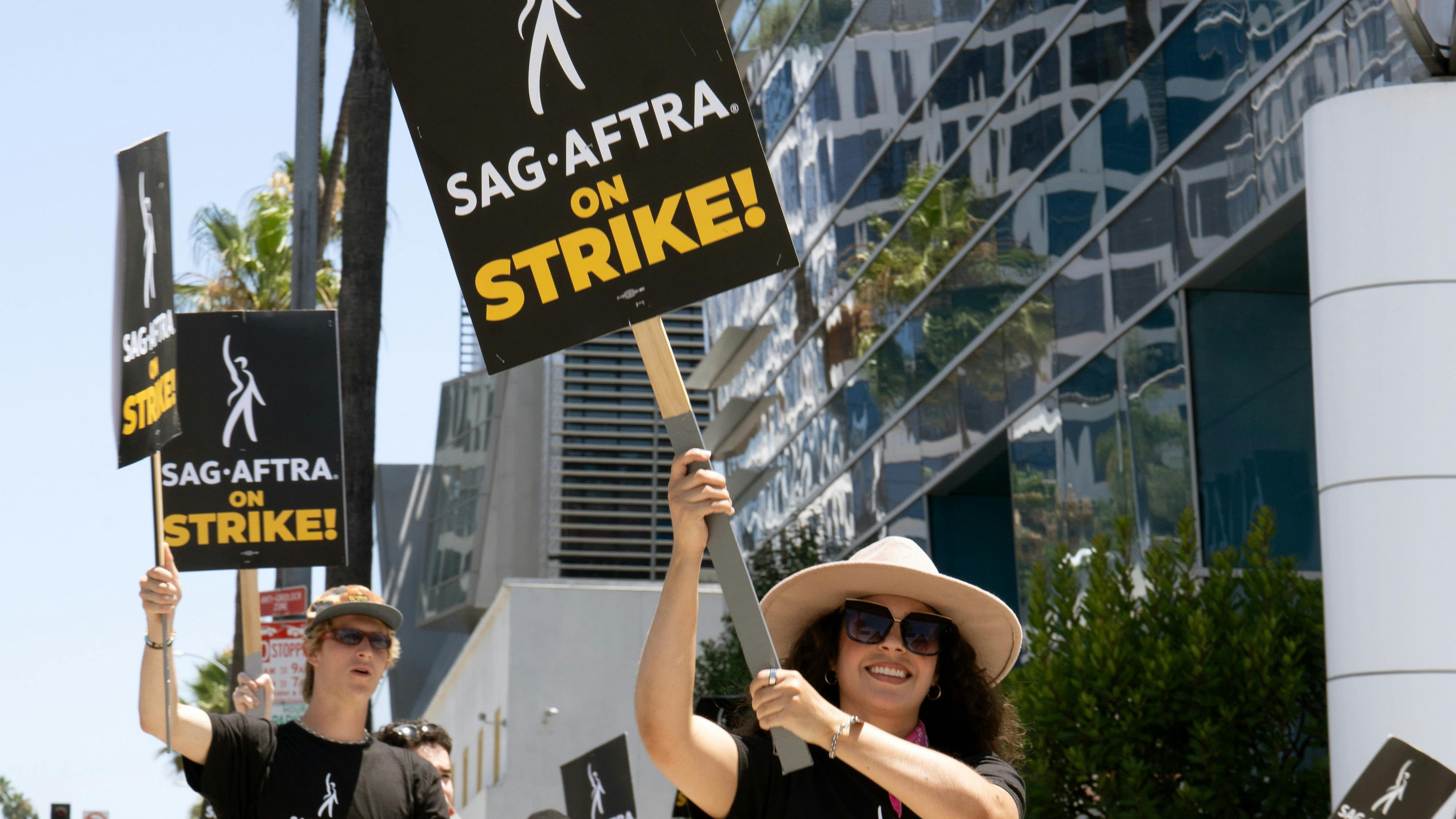End of strike in Hollywood: SAG-AFTRA reaches agreement
November 28 2023
The actors’ union SAG-AFTRA and the major audiovisual production companies reached an agreement on 8 November to put an end to the actors’ strike that had paralysed Hollywood for 4 months.
After a battle and a negotiation period lasting one hundred and eighteen days, the performers obtained a new three-year collective agreement, valued at more than one billion dollars, according to the SAG-AFTRA press release. The agreement, described as historic, includes a significant increase in minimum wages, benefits (including pensions), protection against the use of artificial intelligence, and the establishment, for the first time, of a bonus system for streaming rebroadcasts.
SAG-AFTRA members still have to approve the new collective agreement in a vote covering television, theatre and streaming production, which closes on 5 December.
Negotiations with the major studios, including Disney, Netflix, Warner Bros and Universal, have been taking place on an almost daily basis over the past two weeks, with the CEOs themselves taking part. The need to end the strike was becoming increasingly pressing, with major delays in the release of films and series.
Most of the actors experienced financial difficulties as the strike progressed, with some even turning to other jobs. Studios have been faced with gaps in their release schedules, resulting in significant financial losses for the industry.
The Alliance of Motion Picture and Television Producers (AMPTP), which represented the studios, described the agreement as a “new paradigm” for the film and television sector, expressing its impatience for the industry to get back to work.
The agreement marks the end of a period of historic double industrial action in Hollywood, with screenwriters on strike since May and actors since mid-July. The cost of the industry’s paralysis over the last few months is estimated by economists to be at least $6 billion (€5.6 billion).
Actors and scriptwriters shared the view that remuneration, particularly in the age of streaming, did not allow most of them to make a decent living. The agreement includes an increase in the minimum wage of around 8% for actors, the introduction of a new remuneration system for performers working in the streaming sector, major advances in terms of fairness, and protections linked to technological advances in AI.
In Belgium and more widely in Europe, these concerns are the same and it is clear that PlayRight also wants to obtain such guarantees, protections and financial revaluations for its members and will continue to lobby the industry and politicians to achieve this.
Sources



